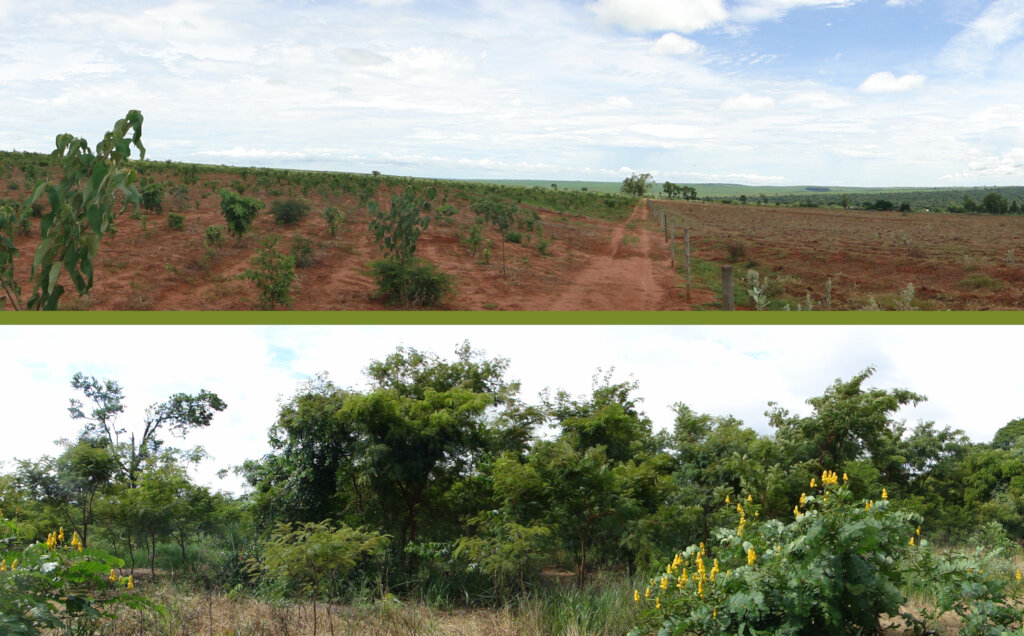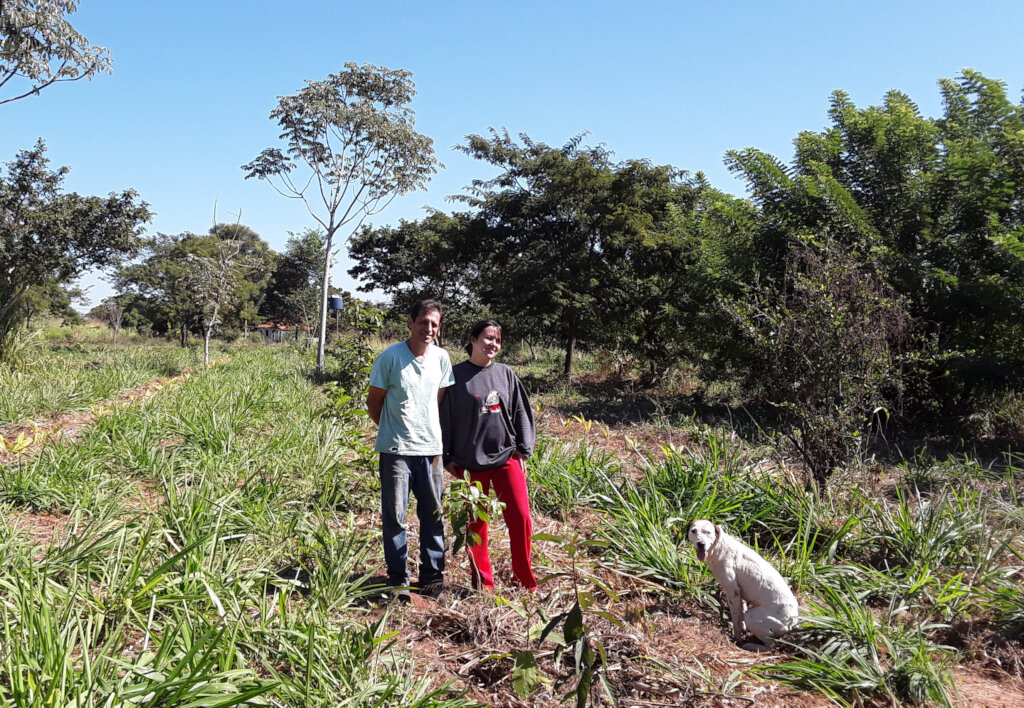By Vienna Leigh | Communications Manager, WeForest
In Pontal, the next areas for 2023-2024’s planting have been defined, and our Brazil country manager Natalia visited the already restored sites to check on the maintenance activities. All is looking well, as can be seen in the photos above. The top picture shows Estrela farm in the North Corridor, where full planting took place over 138 hectares. The land on the left side of the track was planted about 4 months before the picture was taken – the trees and shrubs are shooting up beautifully! On the right site of the track there’s an area that was planted just a few days before. See the tiny green seedlings?
In the bottom picture is Categeró Farm in our newest area of restoration, the East Corridor on the eastern side of the Morro do Diabo State Park. The photo shows an area where only enrichment planting took place about a year before the photo was taken, not full planting. Enrichment planting is an Assisted Natural Regeneration approach where seedlings are planted to increase the density of existing tree species, or to re-introduce species that have gone missing in the ecosystem. You can see that this area is already starting to look like a dense forest!
Our second Atlantic Forest project in Brazil, Tietê Forests, is also going well. This collaboration with AES Brasil aims to restore the forest on the edges of the Tietê river in the Atlantic Biome and its tributaries with native species, as well as establishing agroforestry systems with neighbouring families in Dandara Rural Settlement. In the 2022-2023 planting season that spanned the end of last year and the beginning of this one, 20 families established 12.4 hectares of agroforestry systems on their lands, growing fruit and native tree species. The Tietê Forests project provided seedlings and training, but all the manpower was done by the families – they all got together at one home to help establish the plot, and then the next weekend they did it again at another home, and so on. They report that this has really brought them together as a community: they even have a Whatsapp group where they share pictures, advice and tips!
The teams and stakeholders from both projects got together in June for a multi-day capacity building workshop, during which they visited one another’s project locations and exchanged experiences and good practices, with both sides presenting their project highlights.
Thank you for making this possible!
By Vienna Leigh | Communications Manager, WeForest
By Liz Oates | Corporate Partnership Development Manager
Project reports on GlobalGiving are posted directly to globalgiving.org by Project Leaders as they are completed, generally every 3-4 months. To protect the integrity of these documents, GlobalGiving does not alter them; therefore you may find some language or formatting issues.
If you donate to this project or have donated to this project, you can receive an email when this project posts a report. You can also subscribe for reports without donating.
Support this important cause by creating a personalized fundraising page.
Start a Fundraiser
